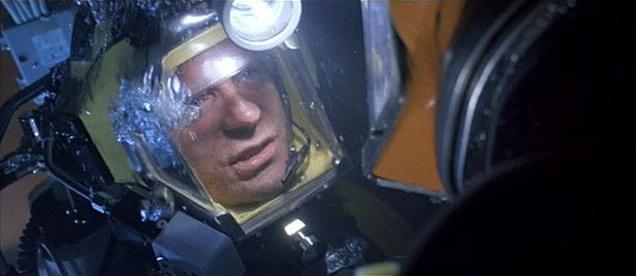
 |
| Photo © 1989 20th Century Fox/Lightstorm Entertainment |
| Academy Award Nominations and Winners: | |
| Best Cinematography: Mikael Salomon | |
| Best Art Direction: Leslie Dilley; Annie Kuljian | |
| Best Sound: Don J. Bassman, Kevin F. Cleary, Richard Overton, and Lee Orloff | |
| ★ | Best Visual Effects: Hoyt Yeatman, Dennis Muren, John Bruno, and Dennis Skotak |
| Permalink | Home | 1989 | ABC | Blog |